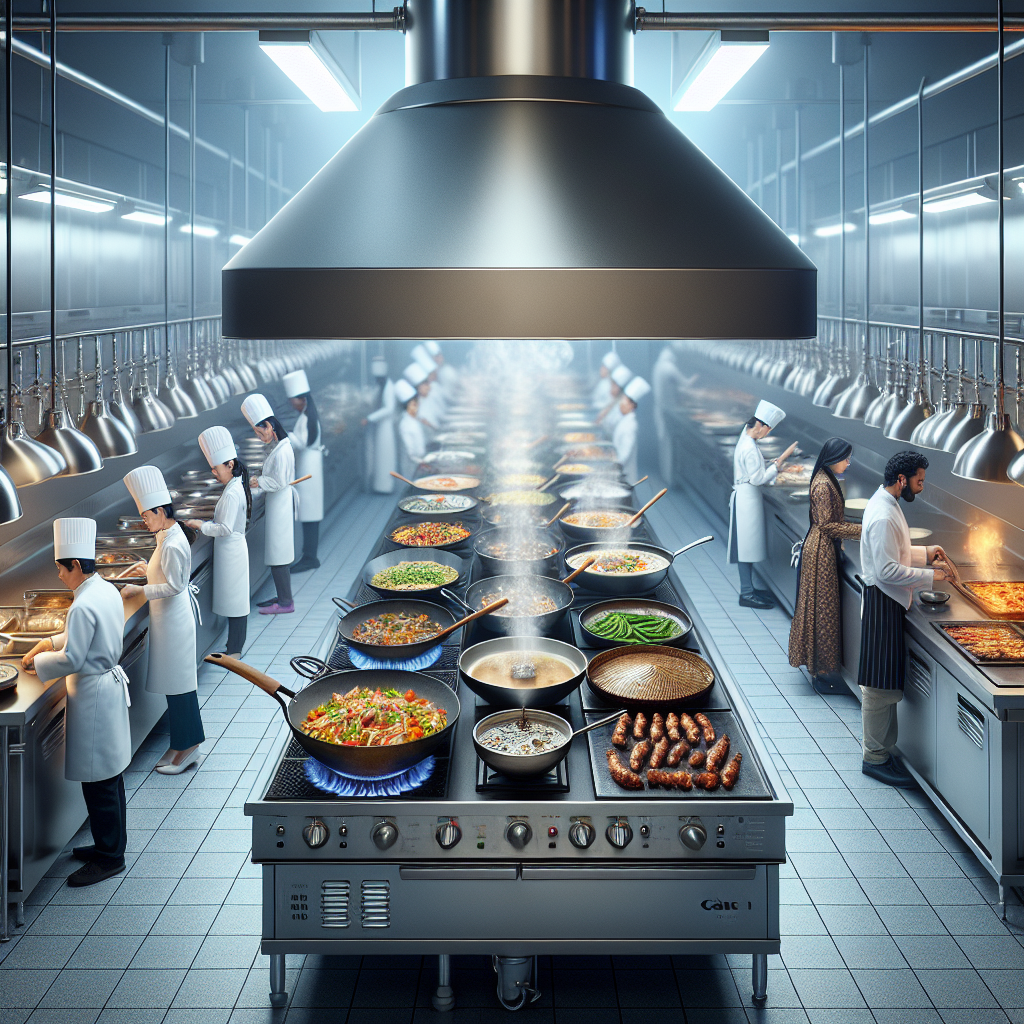Global Restaurant Guide: Cross-Cultural Hood Cleaning Insights
Introduction
Restaurant hood cleaning is an art as much as it is a necessity, especially when it involves a medley of cultural cuisines. Each type of cuisine brings its own set of challenges to the table, or more accurately, to the exhaust hood. Whether you manage a family-run taco joint or a high-end sushi bar in Boston, understanding the nuances of hood cleaning across various culinary traditions is crucial for maintaining a safe, efficient, and compliant commercial kitchen.
The ABCs of Hood Cleaning
Before diving into how different cuisines impact restaurant hood cleaning, let’s recap the basics. Hood cleaning encompasses the regular maintenance of kitchen exhaust systems. This involves removing grease and other residues that accumulate over time. Neglecting these systems can lead to fire hazards, poor air quality, and costly repairs. Regular cleaning is not just recommended; it’s a health and safety imperative.
Asian Cuisine
Chinese Restaurants
Chinese cuisine is known for its use of high heat, woks, and deep frying, all of which contribute significantly to grease build-up. This style of cooking requires frequent commercial kitchen hood cleaning to prevent grease fires and maintain air quality. The intense heat and oil used in dishes like stir-fry can quickly clog up the exhaust system, making regular cleaning vital.
Japanese Restaurants
While Japanese cuisine is generally lighter on the grease compared to Chinese food, there are still considerations to be made. Particular attention needs to be paid to sushi restaurants where raw fish is handled. The venting system should be well-maintained to avoid any odor issues. Additionally, establishments that serve tempura will still need to address oil residue.
European Cuisine
French Restaurants
French kitchens are famous for their sauces and rich cooking methods, which can lead to increased grease accumulation in the hood and exhaust systems. Classic dishes like duck confit and bouillabaisse require detailed attention to exhaust hood cleaning. The meticulous approach of French cooking should extend to regular maintenance of kitchen equipment, including the hood system.
Italian Restaurants
Italian cuisine often involves a lot of ovens for baking pizzas and roasting meats. Though not as grease-intensive as other cuisines, the buildup of carbon and other residues can’t be ignored. Frequent hood inspections and thorough cleanings are essential for keeping the pizza ovens and other cooking devices safe and efficient.
American Cuisine
BBQ Joints
BBQ restaurants face some of the highest risks when it comes to grease fires due to the nature of their cooking methods. The use of smokers and grills produces a significant amount of grease and smoke. To mitigate these risks, it’s crucial to perform regular restaurant hood cleaning. Smoke particulates can travel through the exhaust system, necessitating both frequent and deep cleanings.
Fast Food Restaurants
From burgers to fried chicken, fast food kitchens are grease magnets. Managing the grease levels requires stringent and frequent cleaning routines. Regular hood cleaning can help prevent devastating grease fires and maintain a safe working environment for staff.
Middle Eastern Cuisine
Shawarma and Kebab Shops
Middle Eastern restaurants often use rotisseries to cook meats, which results in a good deal of grease deposition within the hoods. Fortunately, maintaining these systems is straightforward but must be done meticulously. It’s important for these restaurants to schedule monthly exhaust hood cleaning to handle the combination of grease and meat residue effectively.
Latin American Cuisine
Mexican Restaurants
Mexican cuisine uses a variety of cooking techniques, from frying to grilling, each contributing to grease buildup. The richness of dishes like tacos, enchiladas, and chimichangas involves extensive use of oils and fats. Regular restaurant hood cleaning is imperative to keep the establishment safe and running efficiently.
Argentinian Steakhouses
Known for their grilled meats, Argentinian steakhouses accumulate substantial grease in their hoods. The grills are often used consistently, sometimes over open flames, producing particulates and grease. Routine commercial kitchen hood cleaning will help in maintaining air quality and preventing fire hazards.
Conclusion
The complexities of hood cleaning vary significantly across different culinary practices. Whether you’re dealing with the high grease environments of Chinese or BBQ kitchens or the somewhat lighter loads in sushi or pizza establishments, regular and effective cleaning remains paramount. Professional hood cleaning Boston services can provide the expertise needed to tackle these challenges, ensuring compliance and safety for your commercial kitchen.







